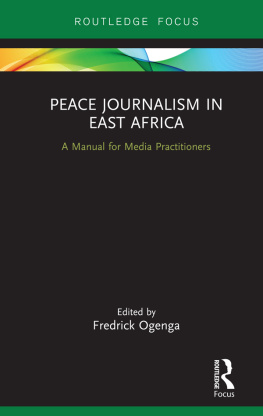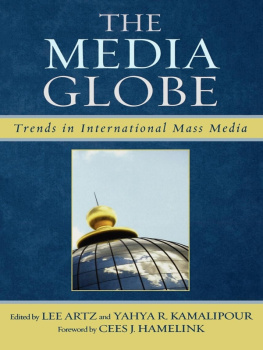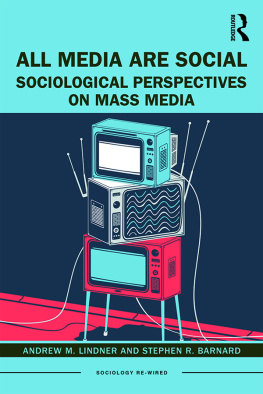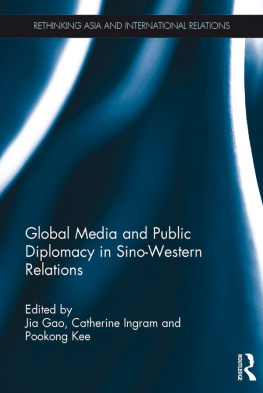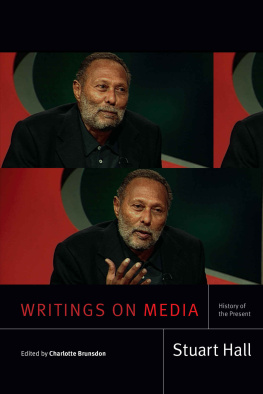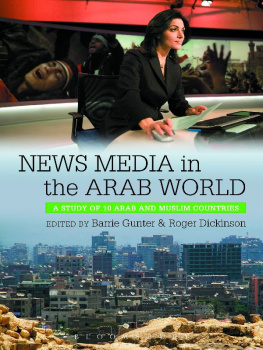MEDIA PRACTICES AND CHANGING AFRICAN SOCIALITIES
Anthropology of Media
Series Editors: Mark Peterson and Sahana Udupa
The ubiquity of media across the globe has led to an explosion of interest in the ways people around the world use media as part of their everyday lives. This series addresses the need for works that describe and theorize multiple, emerging, and sometimes interconnected, media practices in the contemporary world. Interdisciplinary and inclusive, this series offers a forum for ethnographic methodologies, descriptions of non-Western media practices, explorations of transnational connectivity, and studies that link culture and practices across fields of media production and consumption.
Volume 9
Media Practices and Changing African Socialities: Non-media-centric Perspectives
Edited by Jo Helle-Valle and Ardis Storm-Mathisen
Volume 8
Monetising the Dividual Self: The Emergence of the Lifestyle Blog and Influencers in Malaysia
Julian Hopkins
Volume 7
Transborder Media Spaces: Ayuujk Videomaking Between Mexico and the US
Ingrid Kummels
Volume 6
The Making of the Pentecostal Melodrama: Religion, Media and Gender in Kinshasa
Katrien Pype
Volume 5
Localizing the Internet: An Anthropological Account
John Postill
Volume 4
Theorising Media and Practice
Edited by Birgit Bruchler and John Postill
Volume 3
News as Culture: Journalistic Practices and the Remaking of Indian Leadership Traditions
Ursula Rao
Volume 2
The New Media Nation: Indigenous Peoples and Global Communication
Valerie Alia
Volume 1
Alarming Reports: Communicating Conflict in the Daily News
Andrew Arno
Media Practices and Changing African Socialities
Non-media-centric Perspectives
Edited by Jo Helle-Valle and Ardis Storm-Mathisen
First published in 2020 by
Berghahn Books
www.berghahnbooks.com
2020 Jo Helle-Valle and Ardis Storm-Mathisen
All rights reserved. Except for the quotation of short passages for the purposes of criticism and review, no part of this book may be reproduced in any form or by any means, electronic or mechanical, including photocopying, recording, or any information storage and retrieval system now known or to be invented, without written permission of the publisher.
Library of Congress Cataloging-in-Publication Data
Names: Helle-Valle, Jo, editor. | Storm-Mathisen, Ardis, editor.
Title: Media practices and changing African socialities : non-media-centric perspectives / edited by Jo Helle-Valle and Ardis Storm-Mathisen.
Other titles: Anthropology of media ; v. 9.
Description: New York : Berghahn Books, 2020. | Series: Anthropology of media; volume 9 | Includes bibliographical references and index.
Identifiers: LCCN 2019048119 (print) | LCCN 2019048120 (ebook) | ISBN 9781789206616 (hardback) | ISBN 9781789206623 (ebook)
Subjects: LCSH: Digital media--Social aspects--Africa. | Digital media--Economic aspects--Africa.
Classification: LCC HM851 .M4245 2020 (print) | LCC HM851 (ebook) | DDC 303.4833096--dc23
LC record available at https://lccn.loc.gov/2019048119
LC ebook record available at https://lccn.loc.gov/2019048120
British Library Cataloguing in Publication Data
A catalogue record for this book is available from the British Library
ISBN 978-1-78920-661-6 hardback
ISBN 978-1-78920-662-3 ebook
Contents
Jo Helle-Valle and Ardis Storm-Mathisen
Wendy Willems
Ardis Storm-Mathisen and Jo Helle-Valle
Katrien Pype
Nanna Schneidermann
Ardis Storm-Mathisen
Nanna Schneidermann
Jo Helle-Valle
Thomas Hylland Eriksen
Acknowledgements
This book emanates from the research project New Media Practices in a Changing Africa (see www.mediafrica.no), financed by the Research Council of Norway (project no. 240714 /F10), lasting from 2015 to 2019. The projects goal was to understand to what extent and in what ways the media revolution taking place influences the changes contemporary Africa is going through. All the contributors to this book have been part of the project and have collected data as part of the project work. Simultaneously, all have had long involvements with the sites researched. Almost all of us are also social scientists foremost; our interest in media research is the result of what we have encountered in the fields.
This background explains the approach we take on media in this book: a premise for the studies is that the social impact of media requires a practice perspective and a non-media-centric approach. We need to look at practices in order to see how media actually impact sociality (and vice versa). Thus, the chapters take is close-up, ethnographically rich analyses of specific socialities. It is from these concrete, lived realities that we can start to point to more general mechanisms and dynamics linked to media uses in Africa something we attempt to do in the introductory chapter.
We wish first of all to thank the Research Council of Norway. Without its funding this book would never have seen the light of day. Secondly, we the editors thank the chapters authors. Editing an anthology is a long and challenging process but their competence and willingness made the journey interesting and rewarding. The week-long seminar that was held in Marrakech in January 2018 was an especially fruitful event.
We also want to thank Harvard University and the University of Botswana for hosting us as visiting scholars at different stages in the projects life. A special thank you goes to Professor Jean Comaroff for her always friendly and constructive help. We also want to thank Tom Bonnington at Berghahn for his professional and swift support and guidance.
Lastly, we want to thank our families for their non-academic but crucial understanding and support.
Ardis Storm-Mathisen and Jo Helle-Valle
Oslo, October 2019
INTRODUCTION
A Social Science Perspective on Media Practices in Africa
Social Mechanisms, Dynamics and Processes
Jo Helle-Valle and Ardis Storm-Mathisen
The Book and Its Topic
The scope of this book is to contribute to an increased understanding of the social significance of new media in contemporary Africa. For analytical reasons, which will be made clear in this introduction, our approach is to use a few countries for intense, focused, ethnographically based case studies. These are Botswana, South Africa, Zambia and DR Congo. The question about new medias role is a grand one, and in our view it is impossible to ever give a general and definitive answer to it. Still, it is a crucial question to ask, first of all because two occurrences took place more or less at the same time, starting in the mid-1990s: Africa experienced a marked and relatively consistent economic growth (Jerven, 2005, 2015), and during the same period the continent experienced what can only be described as a media revolution. The World Bank, United Nations and other experts on development issues supported by leading media outlets declared that the Dark Continent had recovered. This prompted a strong Africa Rising discourse (Jerven, 2005; Taylor, 2016), often closely linked to the growth of new media (see e.g. Amankwah-Amoah, 2019). Statistics showed that most African countries experienced a sustained growth in GDP and other indicators of economic development.came gradually from the early 1990s but the penetration rate for both mobile phones and use of the internet took off in the early 2000s.


